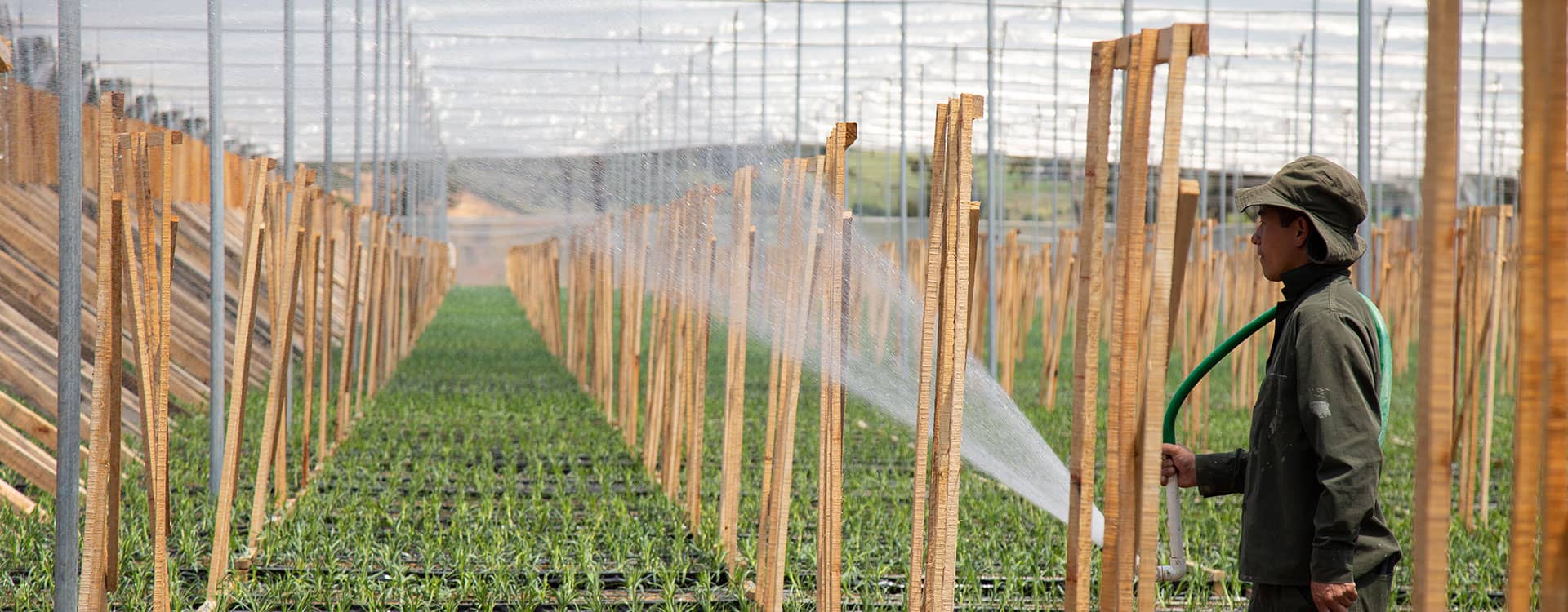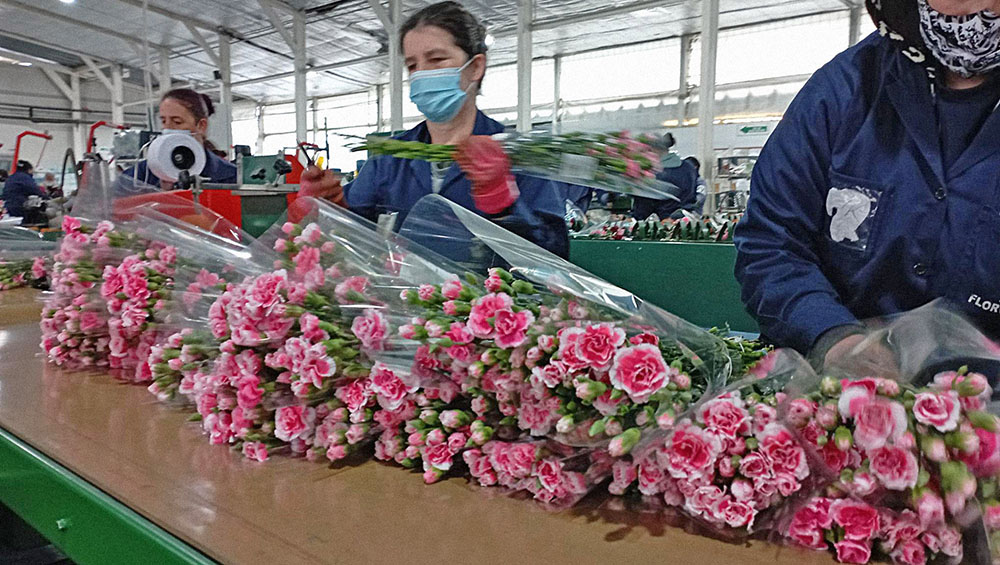In the search of environmental and economic benefits for the agribusiness companies of the network , eight farms implemented good practices for the exploitation of drainage water, and two more are on their way to do so. The process aims to eliminate nematodes and fusarium that are harmful for plants from the water recovered.
In roses, water is treated to reduce the proliferation of algae and prevent the precipitation of some minerals; it then passes through several filters that retain the particles suspended in the water to prevent blockage of the nano-filter, the function of which is to retain the nematodes we want to eliminate.
In the Carnation crops, water from the reservoir goes through a series of filters that retain suspended solids. Chloride is injected at the end of the filtration process to eliminate fusarium.
After the drainage water has gone through the process that eliminates the harmful agents, and considering that it keeps a large part of the of the nutrients, the water resource is ready to be reutilized.
Regular sampling guarantees the process, allows doing a follow´up of water quality and indicates the effectiveness of the treatment.
Fabiola Quintero, manager of Flores El Cacique and Flores Jayvaná, highlights the benefits obtained after the process is implemented: “We recover approximately 30% of the total water used in irrigation, and this contributes to the water balance and to a higher efficiency in the use of the resource. We also save about 15% in the cost of fertilizers”.



